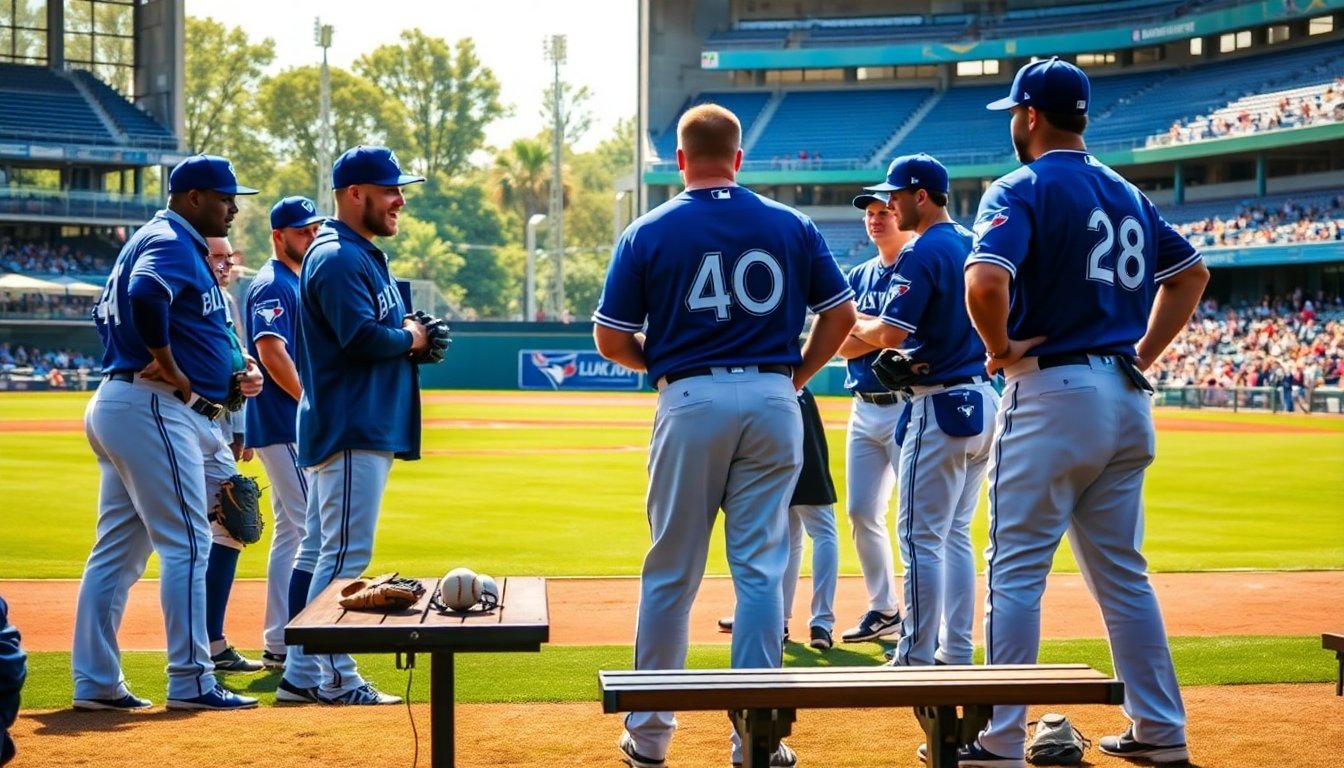Table of Contents
In Game 2 of the World Series, the Toronto Blue Jays faced off against the Los Angeles Dodgers. Manager John Schneider implemented strategic adjustments to his lineup. A key focus was on Bo Bichette, who returned to action after a seven-week recovery from a left knee sprain. Following a decisive victory in Game 1, where the Blue Jays triumphed over the Dodgers 11-4, Bichette aimed to make an impact from the bench.
Lineup changes and strategic decisions
As the game approached, Schneider made notable adjustments to the starting lineup. He chose to start Isiah Kiner-Falefa at second base. Outfielders Nathan Lukes and Addison Barger replaced Davis Schneider and Myles Straw in the starting roster. Although typically a shortstop, Bichette debuted at second base, a decision Schneider had carefully considered. He emphasized the importance of gradually reintegrating Bichette into play, stating, “After the layoff, I didn’t want to like kill him, you know.”
Preparing for a comeback
In the lead-up to the game, Bo Bichette dedicated himself to rigorous preparation for his return. He concentrated on refining his batting skills through live practice, ensuring he remained sharp for the postseason. “I just want to be ready to help the team in any way that is afforded to me,” he stated, demonstrating a strong commitment to teamwork. His presence in the dugout during the Blue Jays’ playoff run highlighted his dedication, even while sidelined.
Historic performance by Barger
The atmosphere of the evening intensified when Addison Barger was called to pinch hit at a crucial moment. In a stunning display of ability, he hit a grand slam, marking the first time a pinch-hitter has achieved this milestone in World Series history. Manager John Schneider had summoned Barger to take advantage of a left-handed pitcher, and Barger exceeded all expectations.
A moment to remember
Reflecting on the experience, Barger described it as surreal. “To be honest with you, I don’t even remember,” he admitted, capturing the intensity of the moment. His grand slam solidified the Blue Jays’ lead and showcased his growth as a player since being drafted in. Following a promising regular season and a strong postseason, Barger’s performance exemplified his potential within the team.
Bichette’s defensive prowess
While the focus was on offense, Bichette’s return highlighted his defensive capabilities. Making his debut at second base, he impressed fans and teammates with a remarkable play in the third inning. Reacting swiftly, he backhanded a hard-hit grounder and made an accurate throw to first base, demonstrating his ability to adapt seamlessly. “Just let the athleticism take over,” Bichette stated, emphasizing his natural talent.
The supportive environment
Bichette’s teammates praised his adaptability. They recognized that his instincts and confidence in his training facilitated a smooth transition. Ernie Clement, a fellow infielder, noted, “He looked like a natural,” highlighting the camaraderie and support within the team. The Blue Jays’ management expressed confidence in Bichette’s ability to contribute, even while adjusting to a new position.
As Game 2 approached, Schneider confirmed the starting pitchers: Kevin Gausman for Toronto and Yoshinobu Yamamoto for Los Angeles, setting the stage for a competitive match. Additionally, Schneider announced that Max Scherzer would pitch in Game 3, followed by Shane Bieber for Game 4. The anticipation for the upcoming games, particularly if they extend to a Game 6 or 7, underscores the excitement surrounding the World Series.
The Toronto Blue Jays celebrated not only the return of Bo Bichette but also the impressive performance of rising star Davis Barger. With their manager’s confidence and strong support from teammates, the team is determined to continue their pursuit of a championship title.


